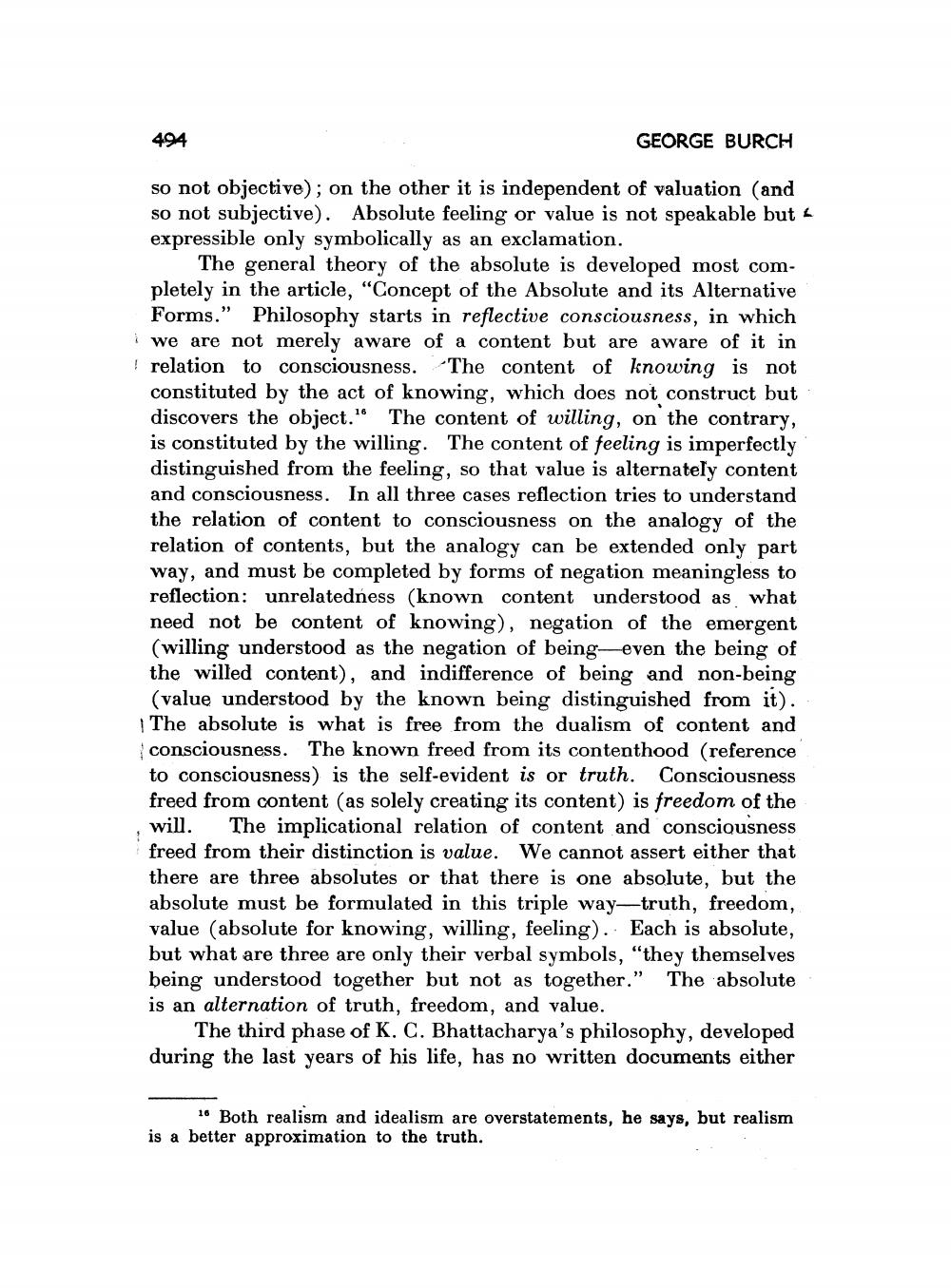________________
494
GEORGE BURCH
so not objective); on the other it is independent of valuation (and so not subjective). Absolute feeling or value is not speakable but expressible only symbolically as an exclamation.
The general theory of the absolute is developed most completely in the article, "Concept of the Absolute and its Alternative Forms." Philosophy starts in reflective consciousness, in which we are not merely aware of a content but are aware of it in relation to consciousness. The content of knowing is not constituted by the act of knowing, which does not construct but discovers the object. The content of willing, on the contrary, is constituted by the willing. The content of feeling is imperfectly distinguished from the feeling, so that value is alternately content and consciousness. In all three cases reflection tries to understand the relation of content to consciousness on the analogy of the relation of contents, but the analogy can be extended only part way, and must be completed by forms of negation meaningless to reflection: unrelatedness (known content understood as what need not be content of knowing), negation of the emergent (willing understood as the negation of being-even the being of the willed content), and indifference of being and non-being
(value understood by the known being distinguished from it). 1 The absolute is what is free from the dualism of content and consciousness. The known freed from its contenthood (reference to consciousness) is the self-evident is or truth. Consciousness freed from content (as solely creating its content) is freedom of the will. The implicational relation of content and consciousness freed from their distinction is value. We cannot assert either that there are three absolutes or that there is one absolute, but the absolute must be formulated in this triple way—truth, freedom, value (absolute for knowing, willing, feeling). Each is absolute, but what are three are only their verbal symbols, "they themselves being understood together but not as together.” The absolute is an alternation of truth, freedom, and value.
The third phase of K, C. Bhattacharya's philosophy, developed during the last years of his life, has no written documents either
16 Both realism and idealism are overstatements, he says, but realism is a better approximation to the truth.




